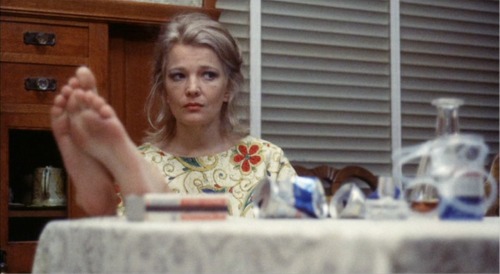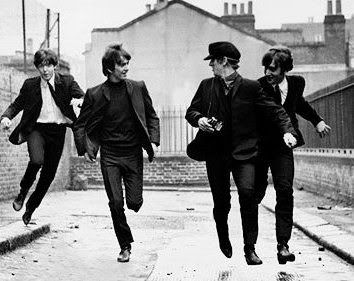 Friends, foes, friends, foes. Repeat two times.
Friends, foes, friends, foes. Repeat two times.Although one pirate less from looking more like a spin-off than an adequate sequel (I think "The Further Adventures of the Eccentric Captain Sparrow" is a more apt title for the film), I think this fourth entry into the 'Pirates' franchise is obviously striving for a fuller and more exotic vision of an adventure movie. It even puts into cinematic life a couple of enigmatic figures of the seas that are things of legends: Edward Teach a.k.a. Blackbeard (played by the wonderful Ian McShane) and the creepy presence of mermaids. But hindered by an unequal pacing, an overexposed Johnny Depp, and a lackluster, claustrophobic climax, it failed to be a memorable one. But do not get me wrong, "Pirates of the Caribbean: On Stranger Tides" got all the right elements to be (lead actors' chemistry, fine supporting cast and a well-thought idea for the quest). Only God and Rob Marshall know what has really gone wrong.
Ever since Johnny Depp's turn as Jack Sparrow in the very first 'Pirates' film, I think he has always been a cinematic crowd-pleaser. Every gestures and antics, every eccentricities and one-liners, Depp delivers with surefire laughter response from the audience. But I think here in "On Stranger Tides", sure he's the life of the film (with Geoffrey Rush as Captain Barbossa in a close second), but at certain moments, his humor is quite fleeting and a bit repetitive. This is not Depp's fault though because he has donned those sweaty wigs and that silly half-drunk persona with all the best he could. But being overexposed as Jack Sparrow in this film is the true culprit for making this latest reprisal of his a lukewarm one.
Personally, I think Johnny Depp's Captain Sparrow, who currently resides in filmsite's "100 Greatest Movie Performances of All Time" and is arguably the most recognizable character he has ever played, never belongs into a film where he is the sole, title-carrying protagonist nor was the character created and fleshed out for a very long screen time. Do you Recall how he has been Will Turner's (played by Orlando Bloom) polar opposite in terms of heroism all throughout the first three films? Reckon how he has been that humorously sacrificial, ever so defiant Kraken dinner in "Dead Man's Chest" who (spoilers) died for being so. Remember how he has been completely absent almost one third done into "At World's End"?
Sparrow is a weird, adventurous and otherworldly character, but also is encapsulated with a hint of enigma. Sure, we've seen his father Captain Teague (played by Keith Richards), but what else? He is a bumbling, sideshow-type of a hero and I think he should have stayed like that. His presence in "On Stranger Tides" is like commissioning an award-winning experimental short film director to direct a 500 million dollar epic, competent but not quite fit. Of course, Sparrow IS the heart and soul of the "Pirates of the Caribbean's" wholeness, but his presence in the franchise's totality is fueled with great ubiquity that immediate visualization of Jack Sparrow as a full-fledged romantic hero is, based on his slightly amoral personality, a bit out of character.
But on one side, as what I've mentioned above, Depp's chemistry with Penelope Cruz is truly great and screen-bound to please. It's sexy yet wholesome. Straightforwardly funny yet full of suggestive innuendos. Now back to the negative (oh, how fast the transition is), another one of my complaints in the film is the unnecessary romantic arc between the very unnecessary character Philip (played by Sam Claflin) and the mermaid named what else but "Syrena". It's too forced and too meet cute. This is a ragged and slimy high adventure after all, isn't it?
And finally, some of those actions. They are often unexciting and the camera is a bit torn on whether to be positionally stagnant to capture all the stunt works and sword fights step by step or to go 'Bourne' (shaky cam) into all of it. With that, I think Rob Marshall is a tad bit indecisive on what to do with those particular scenes, which then leads me to a conclusion that Gore Verbinski (who directed the first three "Pirates of the Caribbean" films) is a better handler of action sequences, and much more exciting at that.
"Pirates of the Caribbean: On Stranger Tides" is good enough for the typical, adventuring movie escapists, but considering the less pressure that the film has on its big-budgeted shoulders (the reason being that the previous "Pirates" installment was not much positively received by critics), the film should have gone on to tread better heights. Its narrative spark that is the search for the fountain of youth is quite fascinating and those little doses of close-minded Spanish Catholicism (that also tells of their killjoy tendencies) inserted near the end furthered the film's departure from summer movie shallowness. But ultimately, its comparative inferiority to Jack Sparrow's earlier exploits and a lacking script proved to be its separation points that easily distinguish it between a good film and a really bad film. Somewhere in the middle but leaning on the 'bad' more, maybe? Yeah, something like that.
Ever since Johnny Depp's turn as Jack Sparrow in the very first 'Pirates' film, I think he has always been a cinematic crowd-pleaser. Every gestures and antics, every eccentricities and one-liners, Depp delivers with surefire laughter response from the audience. But I think here in "On Stranger Tides", sure he's the life of the film (with Geoffrey Rush as Captain Barbossa in a close second), but at certain moments, his humor is quite fleeting and a bit repetitive. This is not Depp's fault though because he has donned those sweaty wigs and that silly half-drunk persona with all the best he could. But being overexposed as Jack Sparrow in this film is the true culprit for making this latest reprisal of his a lukewarm one.
Personally, I think Johnny Depp's Captain Sparrow, who currently resides in filmsite's "100 Greatest Movie Performances of All Time" and is arguably the most recognizable character he has ever played, never belongs into a film where he is the sole, title-carrying protagonist nor was the character created and fleshed out for a very long screen time. Do you Recall how he has been Will Turner's (played by Orlando Bloom) polar opposite in terms of heroism all throughout the first three films? Reckon how he has been that humorously sacrificial, ever so defiant Kraken dinner in "Dead Man's Chest" who (spoilers) died for being so. Remember how he has been completely absent almost one third done into "At World's End"?
Sparrow is a weird, adventurous and otherworldly character, but also is encapsulated with a hint of enigma. Sure, we've seen his father Captain Teague (played by Keith Richards), but what else? He is a bumbling, sideshow-type of a hero and I think he should have stayed like that. His presence in "On Stranger Tides" is like commissioning an award-winning experimental short film director to direct a 500 million dollar epic, competent but not quite fit. Of course, Sparrow IS the heart and soul of the "Pirates of the Caribbean's" wholeness, but his presence in the franchise's totality is fueled with great ubiquity that immediate visualization of Jack Sparrow as a full-fledged romantic hero is, based on his slightly amoral personality, a bit out of character.
But on one side, as what I've mentioned above, Depp's chemistry with Penelope Cruz is truly great and screen-bound to please. It's sexy yet wholesome. Straightforwardly funny yet full of suggestive innuendos. Now back to the negative (oh, how fast the transition is), another one of my complaints in the film is the unnecessary romantic arc between the very unnecessary character Philip (played by Sam Claflin) and the mermaid named what else but "Syrena". It's too forced and too meet cute. This is a ragged and slimy high adventure after all, isn't it?
And finally, some of those actions. They are often unexciting and the camera is a bit torn on whether to be positionally stagnant to capture all the stunt works and sword fights step by step or to go 'Bourne' (shaky cam) into all of it. With that, I think Rob Marshall is a tad bit indecisive on what to do with those particular scenes, which then leads me to a conclusion that Gore Verbinski (who directed the first three "Pirates of the Caribbean" films) is a better handler of action sequences, and much more exciting at that.
"Pirates of the Caribbean: On Stranger Tides" is good enough for the typical, adventuring movie escapists, but considering the less pressure that the film has on its big-budgeted shoulders (the reason being that the previous "Pirates" installment was not much positively received by critics), the film should have gone on to tread better heights. Its narrative spark that is the search for the fountain of youth is quite fascinating and those little doses of close-minded Spanish Catholicism (that also tells of their killjoy tendencies) inserted near the end furthered the film's departure from summer movie shallowness. But ultimately, its comparative inferiority to Jack Sparrow's earlier exploits and a lacking script proved to be its separation points that easily distinguish it between a good film and a really bad film. Somewhere in the middle but leaning on the 'bad' more, maybe? Yeah, something like that.












